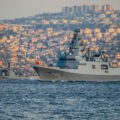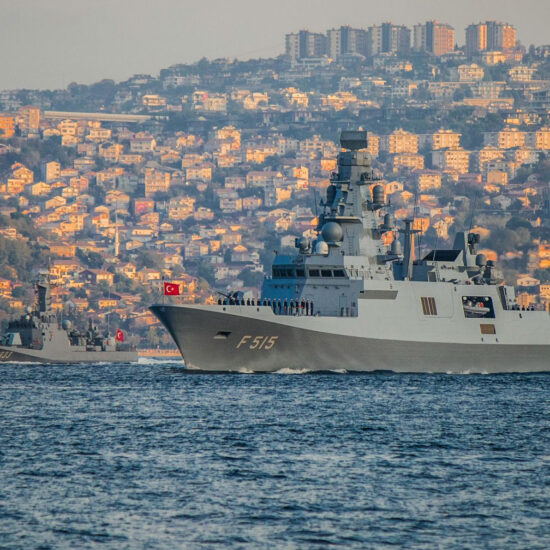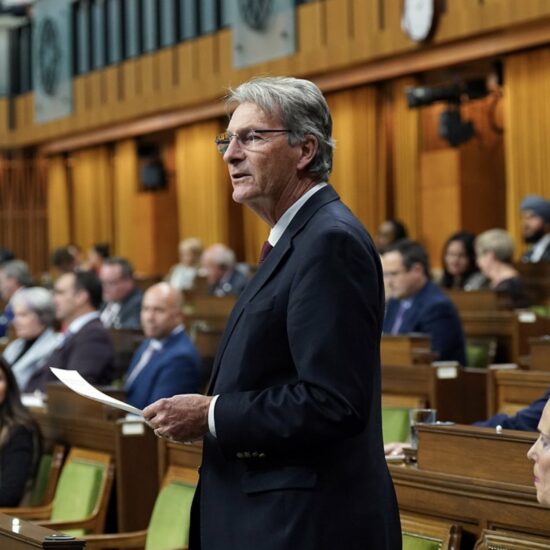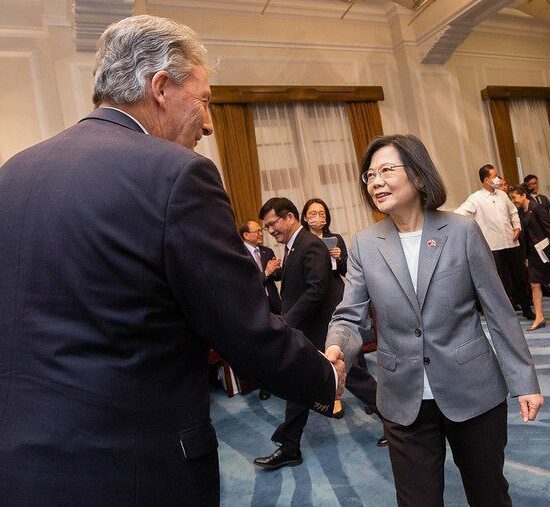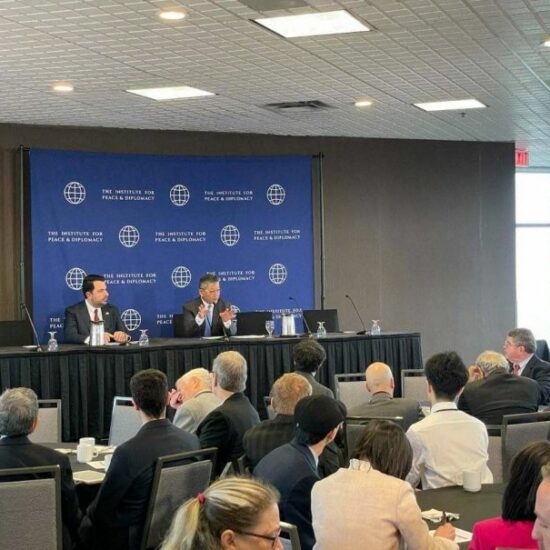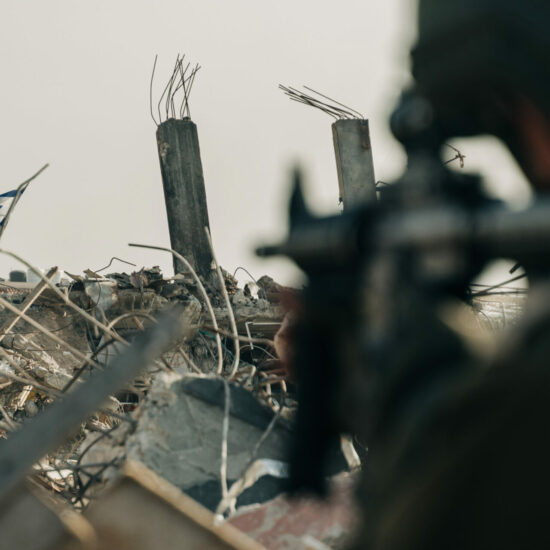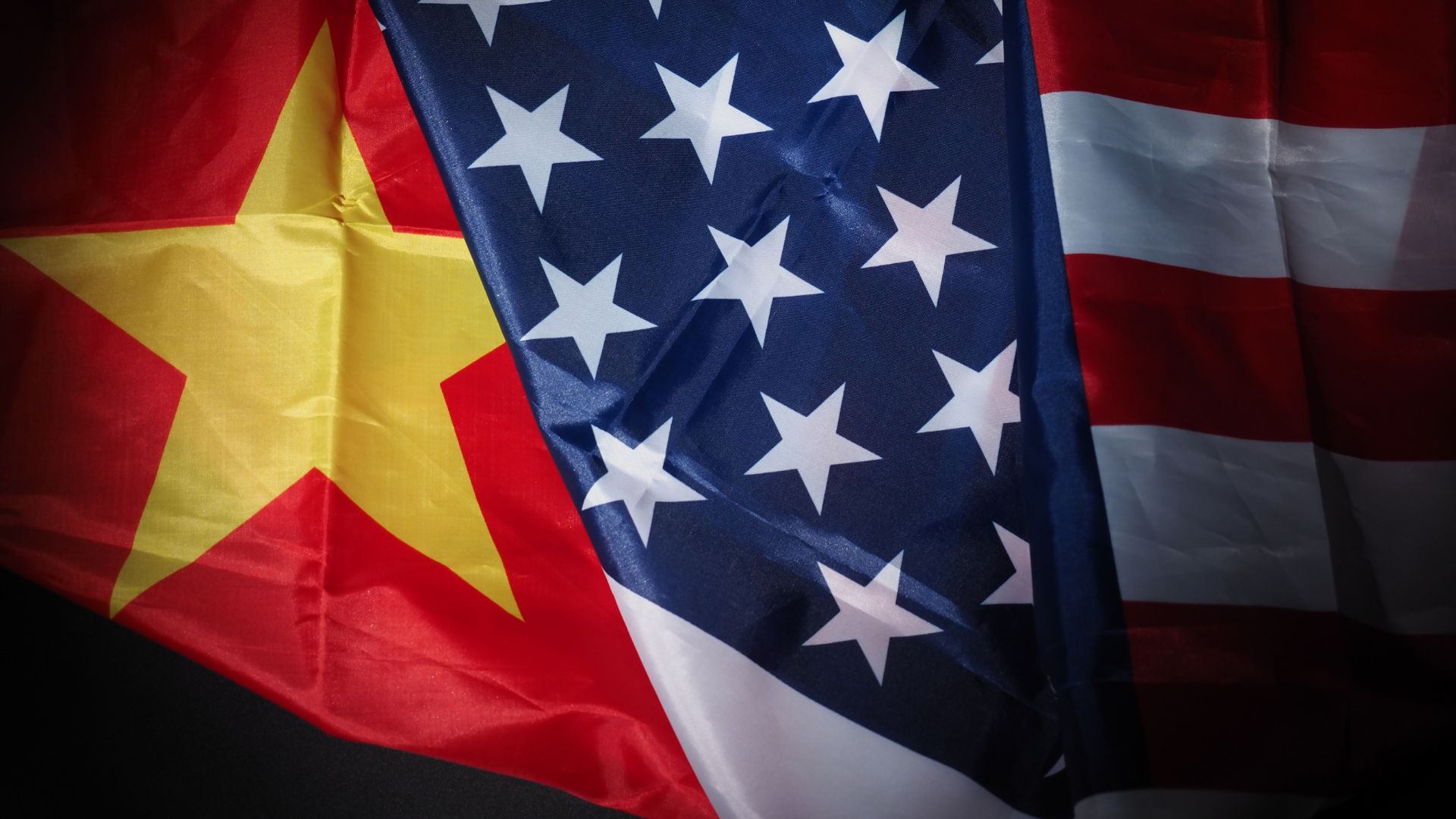
On June 24, 2021 the Institute for Peace & Diplomacy (IPD) hosted a panel discussion on ‘U.S. Perspectives on China and the Nature of the Chinese Challenge to U.S. National Interests’. The first in a series of discussions exploring the current landscape of U.S.-China relations, this panel explored American threat perceptions of Beijing, the hawkish attitudes of Washington’s foreign policy establishment, and how a changing definition of national interest can shape the likelihood of unwanted escalation in Asia.
Arta Moeini, IPD’s Research Director, shared opening remarks to begin the discussion.
The panel convened four distinguished guests, including:
- Doug Bandow, Senior Fellow, Cato Institute
- Douglas Macgregor, Retired U.S. Army Colonel and Senior Fellow, The American Conservative
- Lawrence Wilkerson, Retired U.S. Army Colonel and Distinguished Adjunct Professor, College of William and Mary
- Adam K. Webb, American Co-Director, Hopkins-Nanjing Center
Kelley Vlahos, Senior Advisor to the Quincy Institute for Responsible Statecraft, led the moderation of the panel.
Doug Bandow opened his remarks by dismissing the narrative that bilateral engagement since President Nixon had been a failure. Bandow reiterated that engagement facilitated economic transformation for China’s population, bringing many out of poverty. He observed that this fact is often obscured in debates over China’s challenge today. He cautioned against the tendency to overestimate China’s global footprint and was skeptical about the notion that Beijing is maliciously exporting its governance model. On this basis, Bandow encouraged the U.S. to ground its perceptions in China’s genuine strengths and weaknesses.
While current impressions of Beijing cast it as an adversary (anywhere from a strategic rival to an economic competitor), Bandow pushed back on the false equivalence between China and the Soviet Union’s security challenge. A reality check would limit the salience of this kind of projection on East Asia. Bandow offered that the real question facing U.S. policymakers is “how much we are willing to spend and what risks we are willing to take to impose our will on China in its neighbourhood.” Bandow contended that there is a need to consider strategic empathy when confronting the costs of U.S. power projection. More provocatively, he suggested that emphasizing security as such actually detracts from Washington’s ability to advance economic competition. In closing, Bandow warned against framing every friction point in East Asia and beyond into the spurious narrative of a systemic Chinese threat.
Douglas Macgregor began his statement by echoing Bandow, questioning the idea of Chinese expansionism. At the same time, Macgregor noted that the proper way to view the Chinese model is to focus less on how it is exported and more on why it is attractive to the world outside of the trans-Atlantic community. He suggested that the West needs to “accept the fact that for much of the world, the notion that liberal democracy and a free-willing marketplace is hardly the answer to their needs and problems.”
Returning to the security question, Macgregor observed that China’s force structure is largely defensive – barring red lines on Taiwan. The concentration of China’s resources and military capacity on coastal and missile defense is, in his view, indicative. Building on this observation, Macgregor noted that it is, in fact, the U.S. and Russia that have not followed in China’s footsteps in pledging no-first-use nuclear doctrines. Given this backdrop, he remarked that the only way for China to become a genuine threat to U.S. security interests is through deliberate, if unhelpful, U.S. policies that have the aggregate effect of making that nation into an enemy. Macgregor also pointed out that Washington habitually underappreciates Japan’s potential as a balancing force in Asia.
Lawrence Wilkerson shed light on forces in the U.S. foreign policy establishment that have propagated current views on China owing to their vested interests. Wilkerson stressed that the Beltway needs Beijing to inherit the banner of “existential threat”. He suggested that the military-industrial-congressional complex has mushroomed into an ecosystem of think tanks, universities, and other sympathetic organizations that feed off the inclination toward war. Given these incentives, Wilkerson said the establishment “has to have an enemy now, and it’s found China.” Wilkerson reflected on his encounters with China since his time in military service. He characterized much of the relationship during this period as cooperative. He recalled the candidness of Wang Yi, a Chinese diplomat and foreign minister since 2013, who had said that China was ‘content’ with the U.S. Seventh Fleet as a stabilizing force that had a positive role in China’s economic development.
Fast-forwarding to the China of today, Wilkerson observed that Beijing has developed its own military-industrial complex. That complex, however, is focused on the defense of China, not overseas adventurism. In an Asia where Chinese hegemony is near-inevitable, Wilkerson advised that the U.S. would have to learn “accommodation”. He did not foreclose security measures, but pointed out that Washington would need to get used to relying on its diplomatic toolkit if it hopes to respond to the new power equation. The current culture in Washington, in Wilkerson’s view, is not open to this shift. Wilkerson held “no doubt” in his mind “that the Chinese do not want war.” He expressed his belief that it is primarily the U.S. national security state, not China, that is raising the possibility of conflict.
Adam K. Webb conceded that while there are ideological dimensions to the U.S.-China competition, they are often misrepresented. He suggested it would be simplistic to reduce the rivalry to that of Western universalism pitted against Chinese civilization. Webb linked the rise of China to the ebbing of certain core human values in other countries. This phenomenon of faded moral clarity is, in his view, often lacking in discussions that tout the benefits of engagement. Webb clarified, however, that “the new hardline against Beijing is not because Beijing threatens Western values, but because it threatens Western dominance.” Webb also echoed Macgregor in observing that the West is unwilling to ponder an international order with genuine political and cultural pluralism. Yet, he predicted that structural trends would seem to point to precisely such a pluralistic future.
Given this trajectory, Webb critiqued the West’s approach to China. He also noted that the very manner in which the narrative of “competition” is framed at the state level superimposes a Westphalian bias that neglects how the people of China would themselves contribute to their country’s role in the world. Webb also suggested that the West’s inattention to the Global South leaves it ignorant of the fact that most other world regions are “neither the West nor China” and would simply want to chart their own paths. It is the majority of the world’s population outside this rivalry that will, in Webb’s view, ultimately determine the future course of the international order. In this sense, Webb argued that it is necessary to escape this false binary.
The panel then moved into a question-and-answer period. The segment also allowed speakers to respond to one another’s opening statements. Vlahos posed the issue of Taiwan, cross-Strait relations, and the U.S. response to any contingency. Macgregor noted that a defining fissure likely lies in Taiwanese politics. He differentiated the Kuomintang from the incumbent Democratic Progressive Party – with the latter, in his view, a group of pro-Japanese sovereigntists.
On the matter of U.S. policy, Macgregor was categorical. He outright rejected any proposals that would have American boots in Taiwan. Bandow agreed, stressing that military simulations and the power discrepancy should dampen any ideas of what the U.S. could achieve. Bandow went on to argue that although Beijing is impatient, Chinese military intervention in Taiwan would not occur “as long as they don’t feel forced into making a decision.” He suggested that the greatest danger to international security would be for Washington to underestimate the severity of Chinese nationalism and Beijing’s red lines. On this point, Bandow dispelled establishment voices that “have the illusion” the U.S. could force Chinese acceptance of Taiwan as an American sanctuary with threats and willpower alone.
Bandow recommended that the U.S. deescalate the situation and officially reject the possibility of a Taiwan independence declaration. Webb countered by inquiring about the standards according to which the international community would hold China accountable in the event of mobilization over Taiwan. In response, Wilkerson criticized the growing push for “strategic clarity” on Taiwan that aims to do away with the “One China Policy” as misguided. Wilkerson recalled Beijing’s agitation during his tenure under the Bush administration, particularly when it came to mixed American signals around Taiwanese independence. In this light, he voiced caution over disturbing the status quo in the Strait.
Macgregor articulated the need for the U.S. to focus on renewal at home. To his disapproval, he said “the bipartisan swamp is not really interested in that” and would rather remain “committed almost perpetually to whatever keeps us engaged overseas.” Bandow recentered Beijing by suggesting that it is possible to “make moral critiques of China but also recognize that doesn’t necessarily mean it is an existential threat.” It is more important, in his view, to strategically respond on a case-by-case basis. Macgregor was skeptical whether U.S. foreign policy is capable of this. He rooted U.S. behaviour in an ‘altruistic imperialism’ that goes back to its entry into Asia and its annexation of the Philippines. Wilkerson agreed on the urge to recalibrate, whereas Webb and Bandow reflected on the importance of redistributing defense burdens among U.S. allies in the region.
Towards the end of the discussion, the panel revisited the logic of several U.S. policy tropes. Macgregor disabused the notion that any of China’s neighbors are intent on joining an alliance of “containment”. Bandow questioned the results of an American pressure campaign using sanctions. Both he and Wilkerson agreed that the U.S. tendency to employ them ignored how they did not produce the intended outcomes or change the behaviors of adversaries in any meaningful way.
Regardless of the outlook on U.S.-China relations, the panel came to agree on the areas of mutual interest where cooperation was necessary. Climate change, international shipping, and the depoliticization of people-to-people exchanges were among the major concrete examples raised. However, the panelists concurred that these channels required deliberate commitments in Beijing as well as Washington.
Johnsen Romero is a Policy Research Assistant for the Asia Program at IPD.

